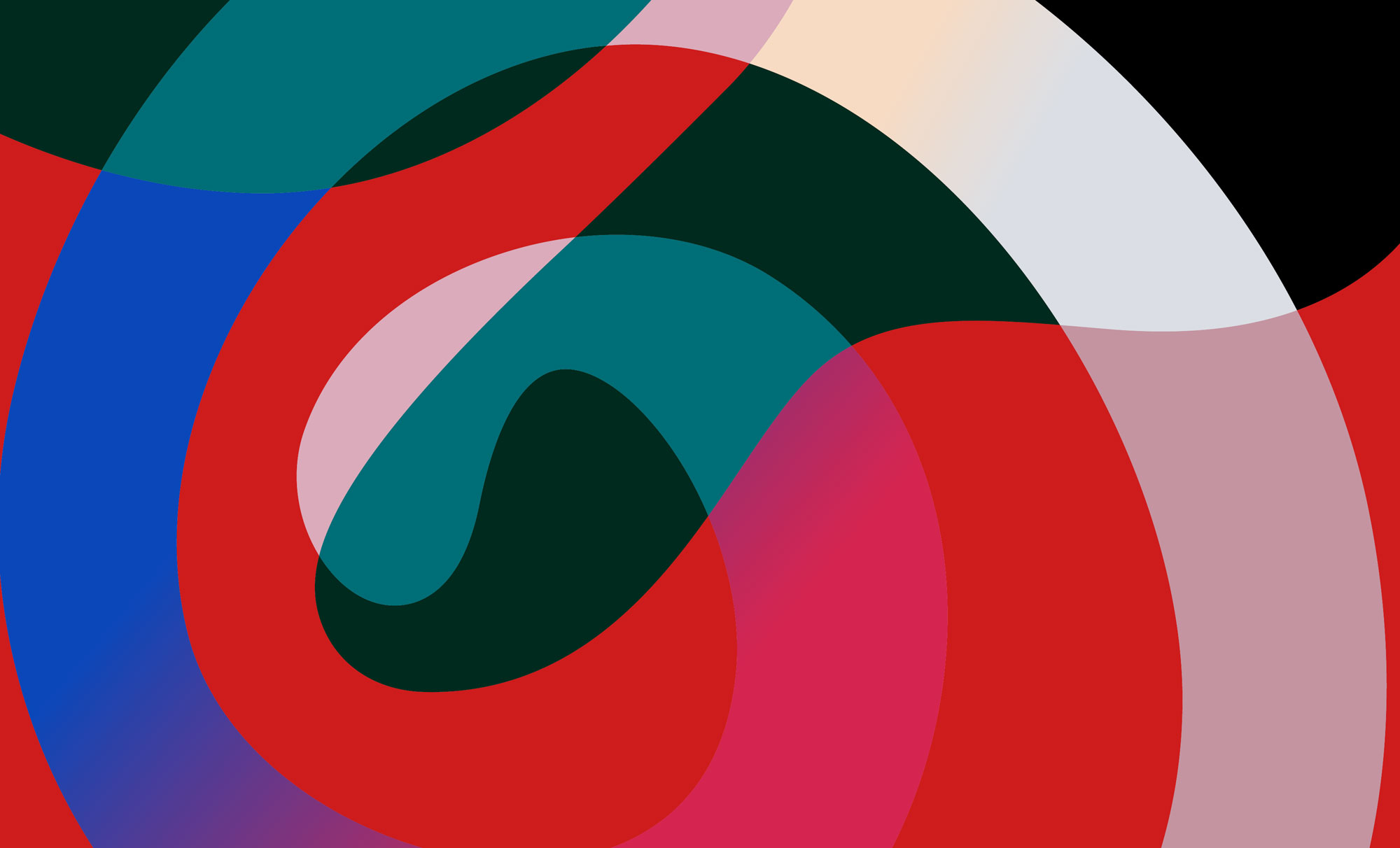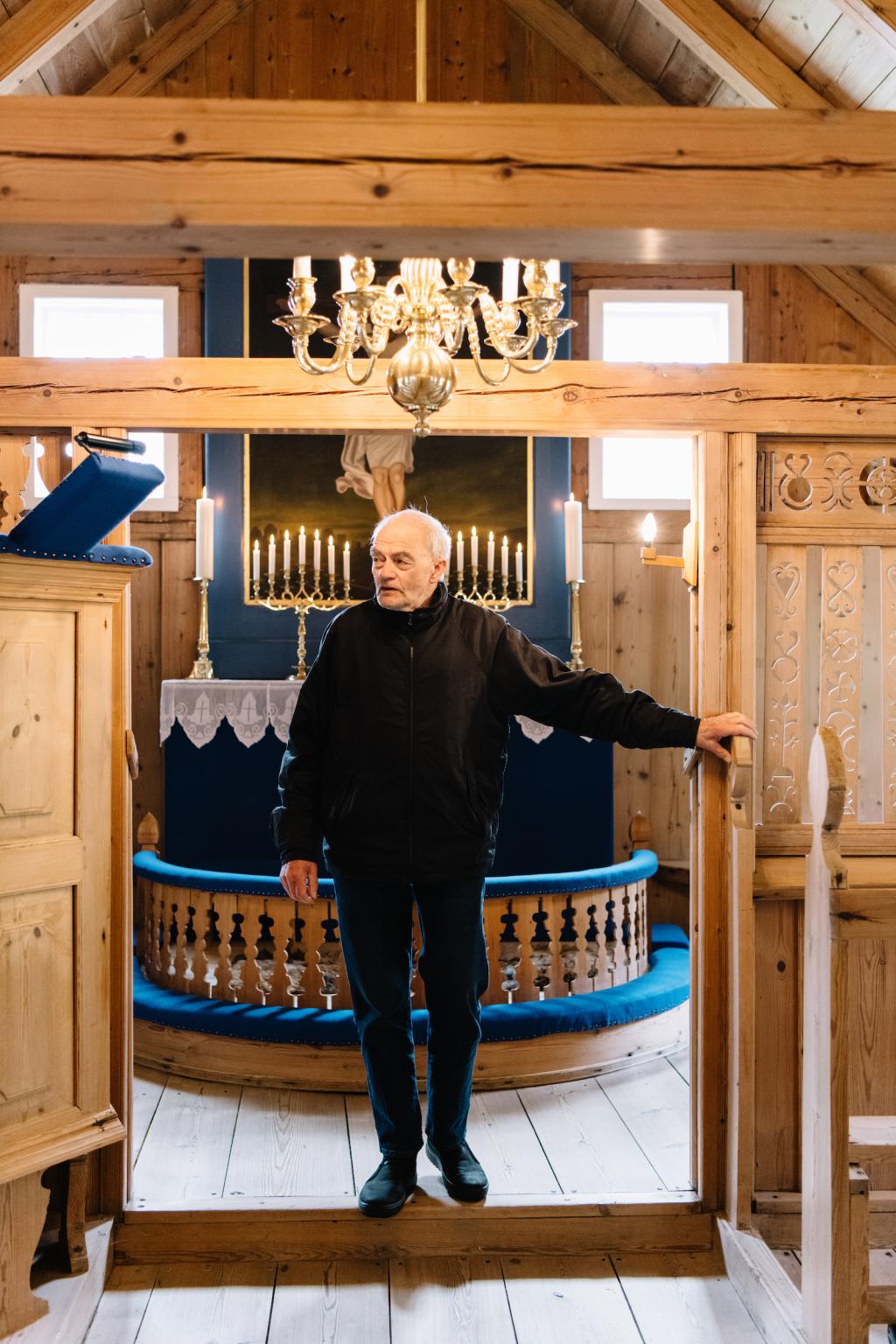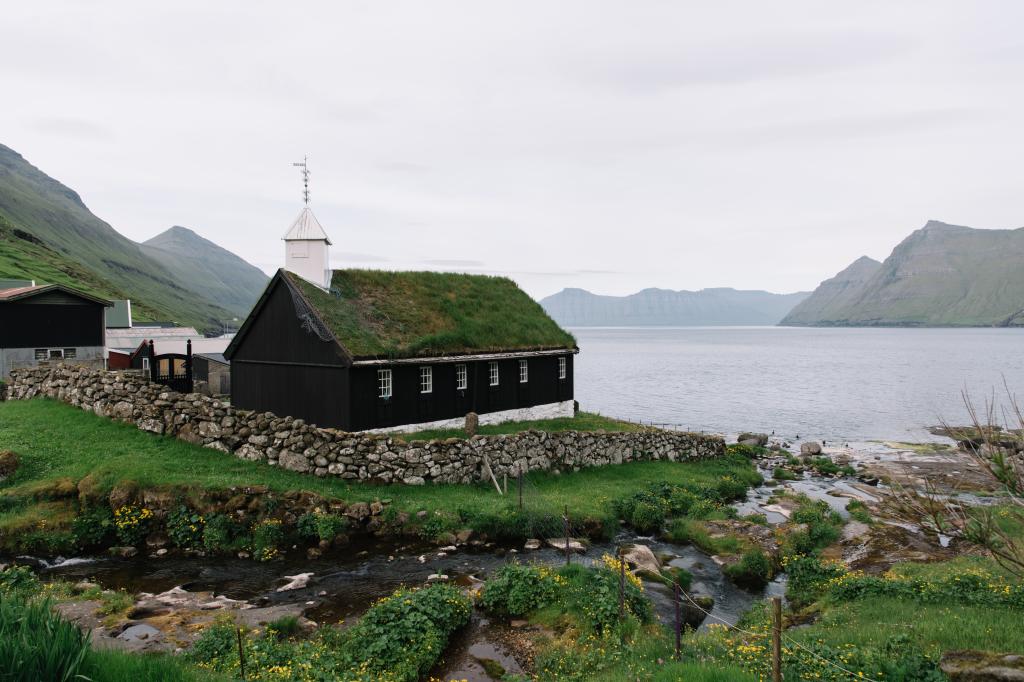You haven’t got any favourites yet
This is where you can collect inspiration, articles, events and places that interest you.
Click the icon on pages and they’ll appear here.
Your favourites
Church of Funningur
one of ten artistic wooden churches remaining
Surrounded by mountains lies the beautiful old village, Funningur. The river that runs between the colourful houses also separates Funnings Kirkja from the stone laid cemetery.
Funnings Kirkja is one of ten artistic wooden churches remaining from the 1829-1847 period. Its exterior is characteristic with its low foundation, tarred walls, white windows, white tower and turf roof. Prior to this church, four churches have resided on the same spot. The first was demolished in 1609 to make space for the second. The current church is, along with the church of Porkeri, the youngest of the wooden churches in the Faroes. Both were inaugurated in 1847.
HISTORY AND ARCHITECTURE
In its interior, the church is particularly beautiful with its carved walls and unpainted wood, which over time turned a golden colour. Between the choir and the church, and in front of the altar and the sacristy, there is a detailed and brilliant artistically carved wall. It has been said that it resembles the icon walls of orthodox churches, only with symbolism from Faroese culture and tradition. According to sources, an elderly woman from Funningur recounts from her grandmother that it was the smiths themselves who did the carving. As in most of the wooden churches of the Faroes, a wooden board, with the engraved year of completion and initials of the craftsmen, hangs above the porch entrance. By all accounts, most of the craftsmen were local guys from Funningur and Gjógv.
FURNISHINGS AND OBJECTS
The church has an unpainted crucifix without arms that originates from the first church from around 1690. Legend has it that it washed ashore in the river-mouth below the church. The octagonal baptismal font from 1835 was originally unpainted. The baptism basin is made of tin and dates from 1735.
Address
Niðri í Túni 1
Eysturoy
Opening hours
-
Closed




